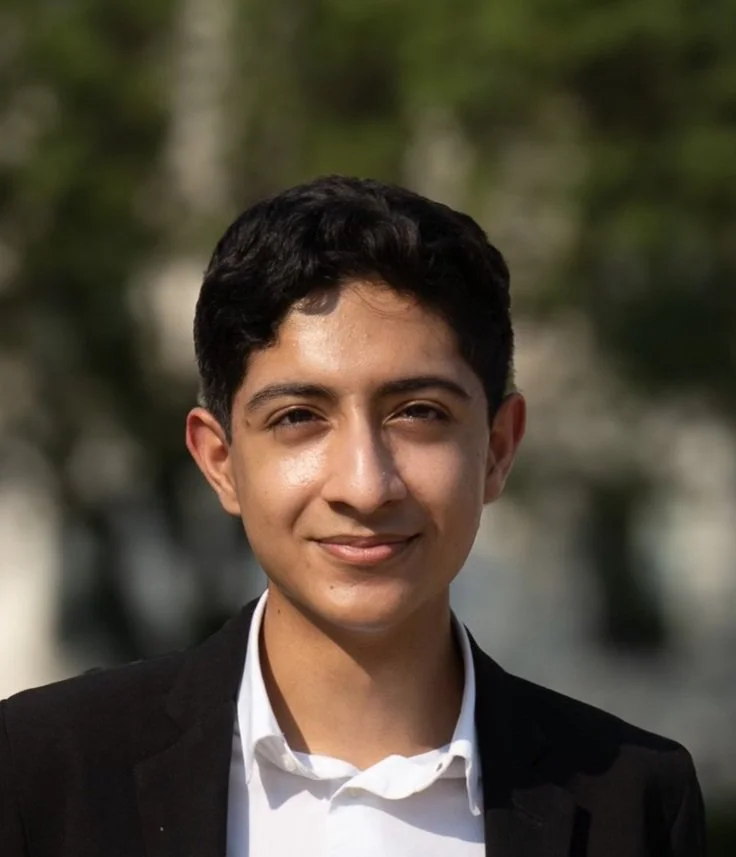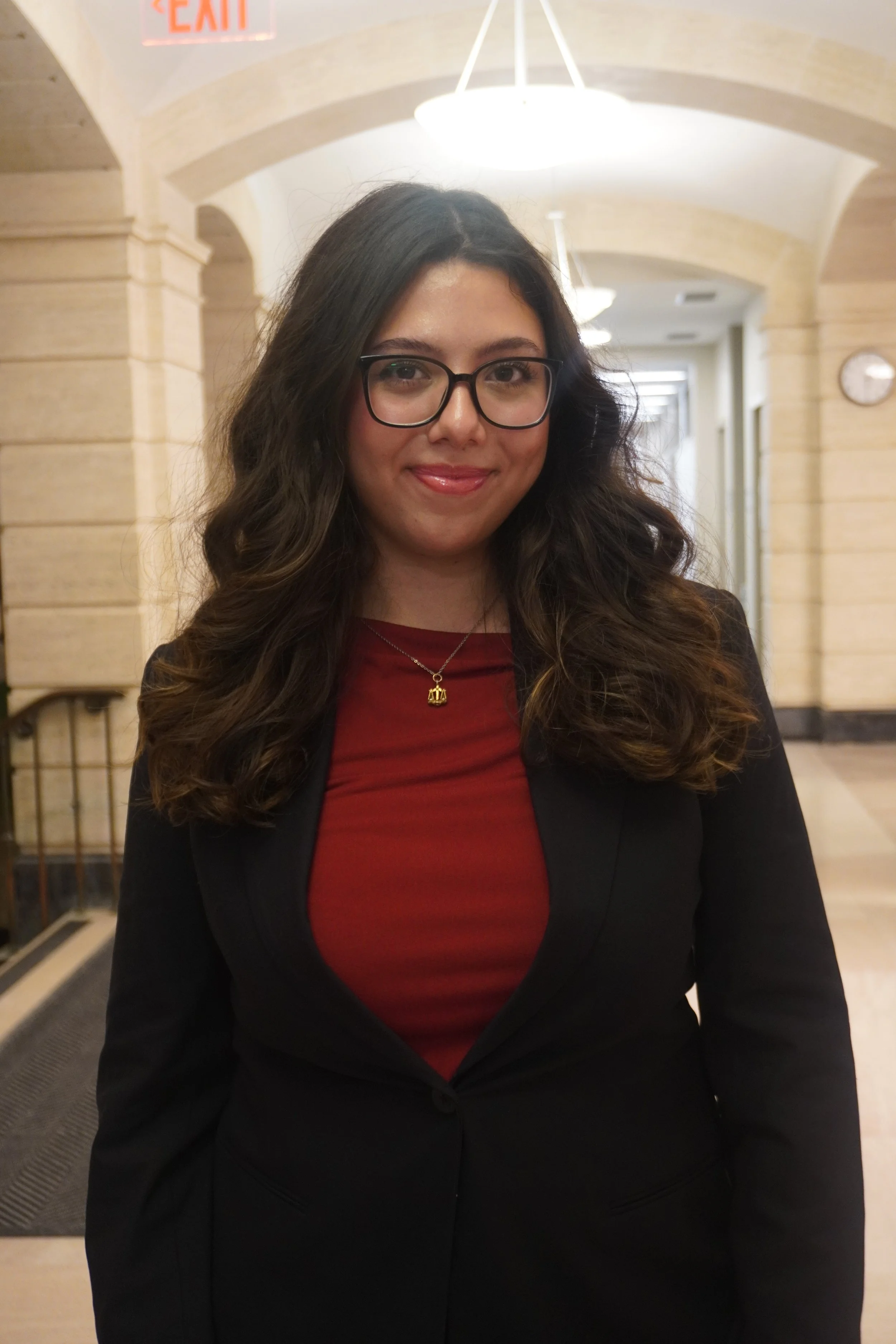
Spotlights
-
![]()
Hon. Robin S. Rosenbaum
Circuit Judge, US Court of Appeals for the Eleventh Circuit
“…So it is in the grandest tradition of our country that the Undergraduate International Law Review at Cornell offers a forum for students untrained in the law to shape ideas about how our world should work.
…The authors featured here, and their readers, are nobly answering Hamilton’s call “to deliberate” on our system of government. I hope more students will join them. There is no more fertile soil than a liberal-arts education to grow the legal mind. That’s especially true today, when the skills that dominate the legal profession can most effectively be developed in college. Most obviously, our jurisprudence places great value on the study of history since we often must discern what the people of the past enacted into law. But as a Cornell alumna, I know that undergraduates’ study choices are practically boundless. Ezra Cornell’s vision of “any person, . . . any study” is a reality.
…Plus, perhaps most relevantly to this journal’s readers, theories of international relations learned in political-science courses can play an important role in discerning the best reading of statutes and the Constitution.
In short, the first step to answering Hamilton’s call is to throw oneself wholeheartedly into study while in college. And absorbing this brilliant issue of the Undergraduate International Law Review at Cornell is a great way to start.”
-
![]()
Professor Menachem Z. Rosensaft
Adjunct Professor of Law, Cornell Law School Lecturer in Law, Columbia Law School
“The UILRC follows in this tradition of intellectual exploration and academic excellence. While numerous universities...have general undergraduate law journals, the field of international law has for the most part been left to law students...What the editors and writers of this new publication demonstrate conclusively is that undergraduates can be equally capable. The broad scope of the articles included here is truly impressive.
I hope that this first issue, superbly spearheaded by its Editor-in-Chief, Yuvraj Tuli, will be the first of many, and that law school admission deans and committees will scrutinize its masthead and table of contents in their search for the next crop of superb and robust legal minds.”
Article Spotlights
Volume I: Issue II (Spring 2025)
-
![]()
Aryan Batada
In my article, Are Individual States Responsible for Climate Change? It Depends., I argue that developed nations, particularly those with substantial historical emissions like the United States and Japan, should bear primary legal responsibility for climate change. This accountability is grounded in the customary no-harm principle and the International Law Commission’s Articles on State Responsibility, recognizing the disproportionate impact of industrialized countries on vulnerable, low-emission states
-
![]()
Jacqueline Perez Bravo
In my article, Checkpoint to Nowhere: When the American Dream Ends at Guantanamo’s Gates, I argue that the Trump Administration’s decision to detain migrants at Guantanamo Bay constitutes a grave violation of both international and constitutional law. This unprecedented policy erodes due process protections, legitimizes abusive detention practices, and dangerously expands executive power in immigration enforcement, undermining fundamental rights and setting a perilous precedent for future administrations.
-
Emma Chan
In my article, Selective Enforcement: Trials and Tribulations of Addressing the M23 Conflict in the Democratic Republic of the Congo, I argue that selective enforcement is a detrimental feature of international law, leading to inconsistent responses to conflict. Using the M23 rebellion as a case study, I examine the limitations of UN sanctions and ICC jurisdiction, revealing structural biases that undermine global accountability and effective humanitarian intervention.
-
![]()
Suhani Chawla
In my article, Universalism vs. Cultural Relativism: The Ethical Foundations of International Law, I argue that universal human rights must take precedence over cultural relativism in situations involving severe harm or coercion. While cultural traditions are significant, practices like female genital mutilation and forced marriage violate fundamental rights and demand international legal intervention, reflecting the need for a balance between cultural respect and human rights enforcement
-
![]()
E. Harold Corbin IV
In my article, The Amazon Rainforest as a Legal Entity: A Bold Step for Environmental Protection in South America, I argue that granting the Amazon Rainforest legal personhood is a necessary step for protecting its unique biodiversity and ecological function. This approach aligns with emerging international trends and could strengthen conservation efforts by empowering the Amazon as a rights-bearing entity under international law.
-
![]()
Brook Emery
In my article, The “Three Strikes” Framework for Evaluating International Sovereignty Disputes, I argue that the international community lacks a consistent and principled approach to resolving sovereignty disputes, often leading to geopolitical paralysis. I propose a structured, threshold-based framework to assess the legitimacy of self-determination claims, balancing the principles of sovereignty and human rights while addressing the shortcomings of existing international mechanisms.
-
![]()
Shania Flores
In my article, Ecocide in the Rome Statute: How the International Criminal Court Can Enforce Climate Accountability, I argue that the ICC must add ecocide to the Rome Statute to address the growing threat of environmental destruction. Recognizing ecocide as a crime would strengthen global protections for ecosystems and human communities, reflecting the interconnected nature of environmental and human rights.
-
![]()
Natalie Guo
In my article, The State of Taiwan: Unrecognized on the International Stage, I argue that Taiwan fulfills the criteria for statehood under international law but remains excluded from key global institutions due to political pressures, primarily from China. This legal liminality undermines Taiwan’s sovereignty and highlights the political nature of state recognition in the international system
-
![]()
Maryam Ismail
In my article, The Deportation of Stateless People, I argue that the deportation of stateless individuals fundamentally conflicts with international human rights law. I examine the legal and ethical implications of statelessness, focusing on the challenges faced by those without legal protection and the urgent need for comprehensive reforms to address this humanitarian crisis
-
![]()
Reyva Jamdar
In my article, Weaponized Citizenship: A Comparative Legal Analysis, I argue that citizenship is often used as a political tool for control and exclusion. By examining cases from Zimbabwe, Kenya, and Malaysia, I reveal how governments manipulate citizenship laws to consolidate power, restrict rights, and marginalize vulnerable populations.
-
![]()
Heather Seungjoo Kwon
In my article, Magic Kingdoms and Legal Grey Zones: How Disney’s Global Expansion Escaped International Scrutiny, I argue that Disney’s international operations exploit legal ambiguities and regulatory gaps to minimize oversight and maximize profits. This strategic use of legal grey zones allows the corporation to evade scrutiny while expanding its global influence
-
![]()
Eric Lechpammer
In my article, Italy, Almasri, and the ICC: A Case of Judicial Intervention versus Domestic Sovereignty, I argue that Italy’s release of Almasri highlights the International Criminal Court’s (ICC) inability to enforce its warrants against non-compliant member states. This incident exposes the structural limitations of the ICC, emphasizing the need for stronger enforcement mechanisms to address state resistance and ensure accountability for international crimes.
-
![]()
Joanne Lee
In my article, The Limits of International Justice: State Non-Cooperation and the Enforcement Crisis at the ICC, I argue that the International Criminal Court’s reliance on state cooperation significantly weakens its ability to enforce international criminal law. Without stronger enforcement mechanisms, the Court risks becoming a symbolic institution rather than a functional body, unable to hold powerful offenders accountable or deliver justice for victims of mass atrocity.
-
![]()
Julia Nakabugo Leary
In my article, Human Rights & Economic Development: How Museveni Exploits and Breaks International and Domestic Law to Stagnate Uganda’s Economy, I argue that President Yoweri Museveni has weaponized international and domestic law to entrench economic inequality in Uganda. By manipulating legal frameworks and exploiting humanitarian aid, Museveni has perpetuated poverty traps, undermined human rights, and hindered the nation’s economic development.
-
![]()
Callum McArthur
In my article, PAFACA and TikTok: A Case Study on the Urgent Need for International Online Regulations, I argue that domestic laws like the U.S. Protecting Americans from Foreign Adversary Controlled Applications Act (PAFACA) undermine international digital trade and free speech. Without a comprehensive global framework, such laws create economic tensions and weaken the principles of free trade in the digital age.
-
![]()
Meera Misra
In my article, An Exemption for Exploitation: De Minimis Exemptions and the Challenge to Uphold International Labor Law, I argue that de minimis thresholds, while beneficial for small businesses and consumers, create loopholes that enable the import of unethically produced goods. These exemptions undermine international labor laws by allowing goods linked to child labor and forced labor to enter global markets without sufficient oversight.
-
![]()
Jonathan Mong
In my article, The Unintended Extractive Consequences of European Integration, I argue that the European Union’s integration policies, while promoting political stability, have unintentionally deepened economic inequalities among member states. These policies have stunted economic growth in formerly authoritarian countries, creating economic dependencies and reinforcing regional disparities.
-
Natalie Szeto
In my article, Universal Jurisdiction in International Law: A Historical and Contemporary Analysis, I argue that universal jurisdiction, while intended to bring justice for grave international crimes, suffers from inconsistent application and political influence. Without a comprehensive and enforceable framework, this legal tool risks becoming a selective instrument, undermining its legitimacy as a means for global accountability.
-
![]()
Nafisi Tian
In my article, Criminalization of Humanitarian Aid to Refugees: A Blatant Undermining of Human Rights at the Border, I argue that the growing trend of criminalizing humanitarian aid to refugees represents a significant overreach of state authority. This practice undermines international human rights protections, violates the inherent right to life enshrined in the ICCPR and UDHR, and threatens the fundamental principles of humanitarianism.
Faculty Article Spotlight
Volume I: Issue II (Spring 2025)
-
![]()
Professor Mohamed ‘Arafa and Professor Joshua Aaron Jones
(1) Adjunct Professor of Law, Cornell Law School
(2) Legal Writing Professor and Co-Director of the Law, Justice, and Technology Initiative, California Western School of Law
In their article Sexual Conversion Therapy in the Third World: An Islamic Perspective, Professors Mohamed Arafa and Joshua Aaron Jones argue that while traditional Islamic jurisprudence has often condemned homosexuality and supported conversion therapy, there is growing scholarly and community-based advocacy for reinterpretations of Islamic teachings that embrace sexual diversity and human rights. They call for a reformed, inclusive Islamic legal and ethical framework resisting punitive and exclusionary practices.
Volume I: Issue I (Fall 2024)
-
![]()
Beth Ebrahimpour
In my article, Expanding the Definition of International Crime: How the International Criminal Court Can Combat Human Trafficking, I argue that the Rome Statute’s failure to clearly define the status of a victim of human trafficking threatens victims’ protections under the United Nations non-punishment principle and undermines the core principle of international human rights law, which is to ensure universal access to human rights.
-
Agustina Abril Garcia Xifre
In my article, The Road Towards Accountability: Enhancing the Normative Framework of Draft Article 7, I argue that curtailing functional immunity for state officials accused of grave international crimes such as genocide, war crimes, and crimes against humanity is essential to strengthening the international legal framework. This reform prioritizes accountability, deters future atrocities, and ensures justice while balancing state sovereignty and safeguarding human rights globally.
-
![]()
Courtney Huang
In my article, Investor-State Arbitration: Balancing Contract Enforcement and Sovereignty in Global Commerce, I argue that while investor-state dispute settlements (ISDS) are a crucial mechanism, they often disproportionately favor corporate interests at the expense of host nations' ability to manage local governance and uphold labor rights. I examine the ISDS mechanism in detail, highlighting its procedural flaws, lack of transparency, and the limited scope for host nations to assert their regulatory sovereignty.
-
![]()
Joanne Lee
In my article, Human Rights Violations at International Borders: Balancing Sovereignty and Refugee Protections, I argue Australia’s and Hungary’s border policies erode refugee rights, setting dangerous precedents that threaten the global refugee protection framework. These policies compromise international conventions, reflecting broader issues in refugee protection like weak enforcement, national interests, and political resistance. To safeguard asylum seekers' rights and the integrity of the global system, urgent legal and policy reforms along with practical measures for better border practices, are essential.
-
![]()
Edwin Michel
In my article, The International Community’s Discrepancy Between Law and Ethics, I explore how the United Nations, despite being founded on ethical principles, is often influenced by the political agendas of its most powerful member states. This dynamic undermines the UN's ability to act as an impartial global arbiter, thereby eroding the organization's legitimacy and authority.
-
![]()
Natalie Guo
In my article, Clashing Territorial Claims in the South China Sea: The Role Legal Bodies Play in Mediating Disputes, I discuss the realm of influence exerted by international legal bodies when it comes to resolving regional disputes.
-
![]()
Callum McArthur
In my article, Corporate Rights vs. Sovereign Censorship: The Issue of Online Disinformation in Brazil, I explore the intricacies of the issues that arise when government internet regulations on usage and content clash with multinational American corporations. In particular, the focus is on how political unrest in Brazil was attributed to online media, how the Brazilian government implemented legislation to combat this, and how prominent online platforms, such as Elon Musk’s X, reacted.
-
![]()
Meera Misra
In my article, International IP Law and Healthcare, I discuss the role that intellectual property law played in the inequitable distribution of vaccines during the Covid-19 Pandemic. I argue for increased technology transfer and expedited patent waivers in emergency situations to better protect global health.
-
![]()
Aryan Batada
In my article, Climate Displacement: The Legal Challenges for Climate-Related Migrants, I argue that current international legal frameworks fail to adequately protect those displaced by climate change. The article calls for expanding the 1951 Refugee Convention to recognize climate-induced displacement as a legitimate ground for asylum, emphasizing the need for a legal definition that accounts for the unique challenges faced by climate migrants
-
![]()
Jacqueline Perez Bravo
In my article, Digital Barriers: The Use of the Biden Administration’s CBP One App to Limit Asylum Access, I argue that the CBP One app, despite its intent to streamline asylum processing, imposes significant digital and financial barriers that effectively limit asylum access. This digital divide violates core principles of the 1951 Refugee Convention, including non-refoulement and non-discrimination, creating dangerous gaps in humanitarian protection
-
![]()
Heather Seungjoo Kwon
In my article, Balancing Conservation and Sovereignty: The ICJ’s Decision in Whaling in the Antarctic and Its Impact on International Environmental Law, I argue that the ICJ’s ruling in Whaling in the Antarctic reflects a critical moment for balancing conservation efforts with state sovereignty. This decision highlights the need for stronger international frameworks to protect marine biodiversity while respecting national interests.
-
Natalie Szeto
In my article, Self-Determination and Sovereignty in International Law: The Legal Status of Semi-Autonomous Regions, I argue that international law must provide clearer guidelines for the self-determination of semi-autonomous regions. This clarity is essential for resolving territorial disputes, preventing conflict, and ensuring stable governance in contested regions
-
![]()
Suhani Chawla
In my article, The Use of Legal Precedent by the ICJ in the Armenia-Azerbaijan Conflict: A Case for Region-Specific Adaptation?, I argue that the International Court of Justice (ICJ) should adopt a region-specific approach to precedent in complex territorial disputes. By tailoring its legal reasoning to the unique political and historical contexts of each region, the ICJ can enhance its legitimacy and effectiveness in resolving such conflicts.

























